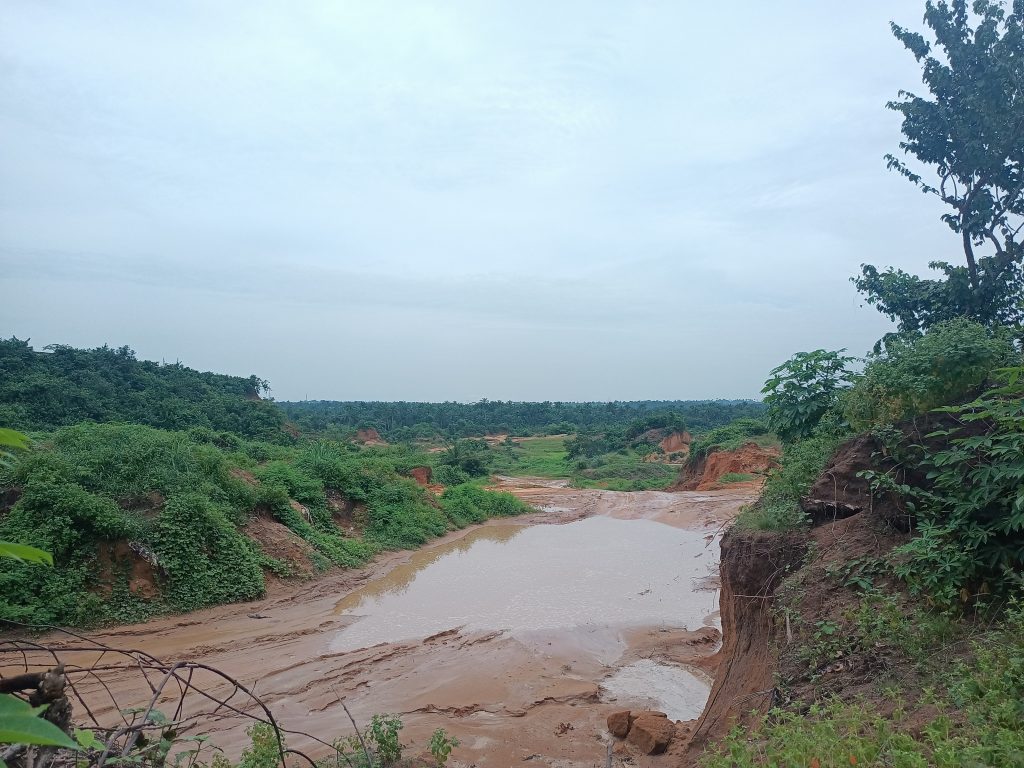Remediation of Uyo Village Road Dumpsite Below Global Best Practice- Environmental Rights Groups Raise Alarm
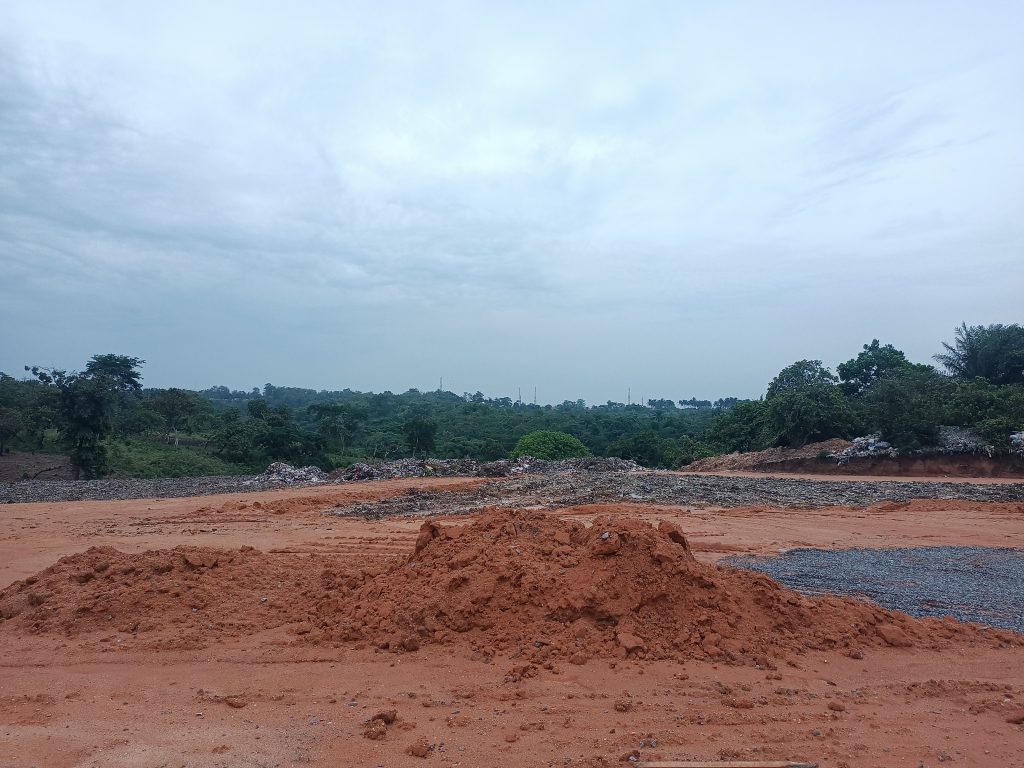
By Ekemini Simon
Environmental Rights Groups in the Niger Delta have condemned the remediation strategy undertaken by the government of Akwa Ibom State on the Akpayak, Ikot Afia and Nung Uyo Community waste dumpsite popularly referred to as the Uyo Village Road Dumpsite.
The government of Akwa Ibom State at the State Executive Council meeting of December 30, 2022 had announced the approval granted for the remediation of the dump site at Uyo village road and landfill management. The project is tagged ” Dumpsite maintenance, repairs/bio-remediation”.
The State government noted that the Ministry of Environment and Solid Minerals and the Akwa ibom State Environmental Protection and Waste Management Agency are to execute the task.
Four months after the announcement, members Zero Waste Ambassadors (ZeWA) in Akwa Ibom State including Environmental Rights Groups, Environmental Rights Action/ Friends of the Earth (ERA/FoEN) and Policy Alert went on the spot assessment of work of the dumpsite to access the level of development.
This reporter who joined the team had observed that remediation and engineering work was ongoing although red sand was heaped on waste that was non-degradable.
Speaking on the level of work executed, the Contractor and Site Engineer handling the Dumpsite maintenance and repairs, Emmanuel Moma of Whitestone Engineering said they are focused on constructing a better channel for the trucks to stop disposing the waste on the road but rather move down to the ravine.
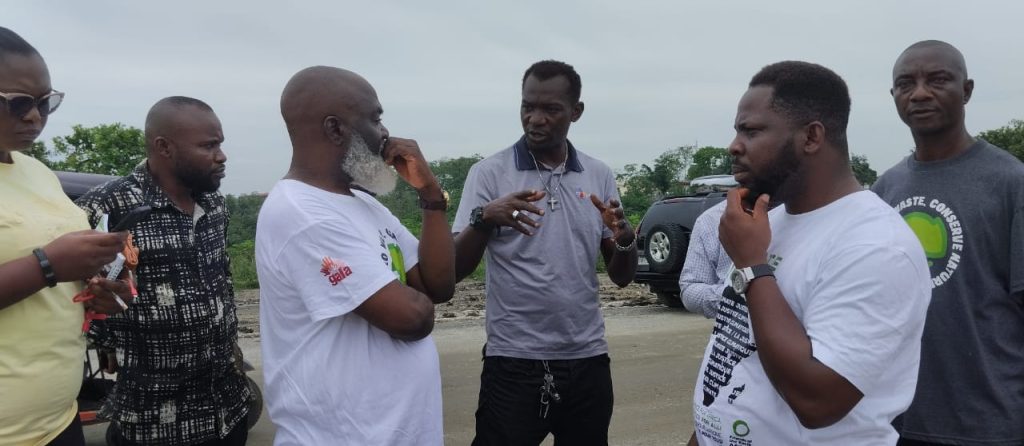
He said ” We have excavated 12 feet deep into the ground, took everything out and put waterproof beneath. You don’t expect a collapse in the future.”
He said when the companies come in for recycling in the future, the site will serve as a transfer station where the waste will be stored and later taken for recycling.
Moma noted that the gains that would be recorded when the road is paved for waste to be disposed of at the ravine will be land reclamation.
Speaking after the inspection, the Program Manager of Environmental Rights Action/ Friends of the Earth (ERA/FoEN), Ubrei-Joe Mariere commended the government of Akwa Ibom State for the project.
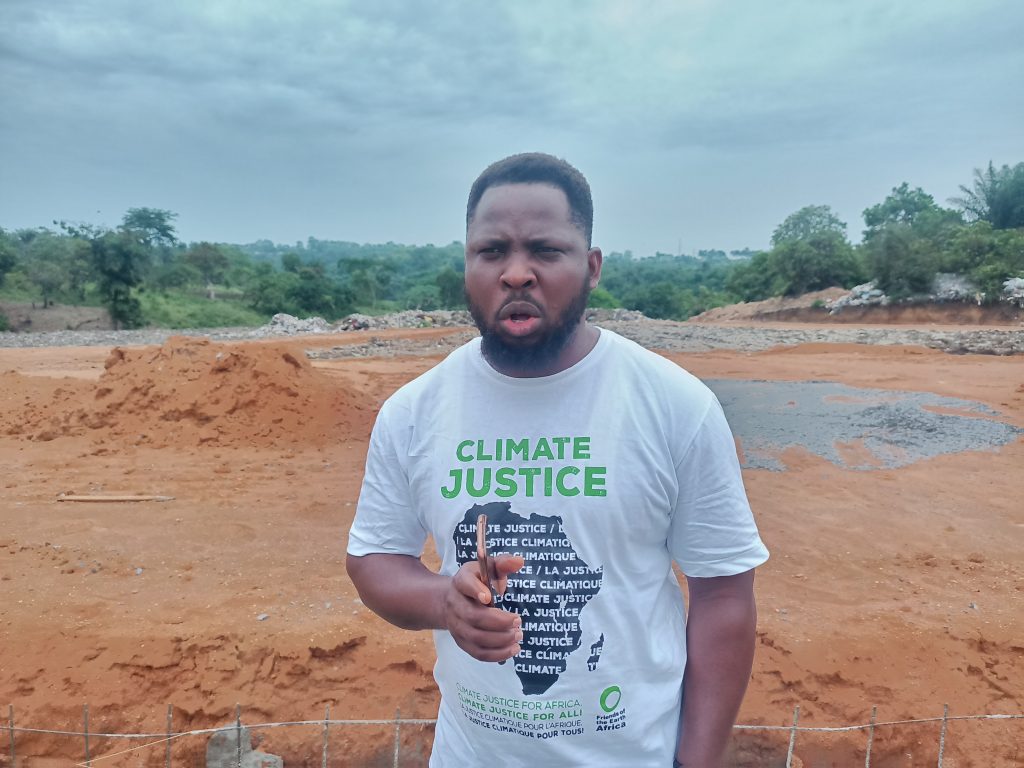
Mariere moving towards the remediation of the site shows that the actions of Zero Waste Ambassadors in the State including other Environmental Rights Groups has yielded results.
He however pointed out that the remediation method is not in line with the best international practice but added that there is room for improvement.
He noted “The previous site that was decommissioned created problems for the community. With the method of the ongoing remediation, this site will still create problems.
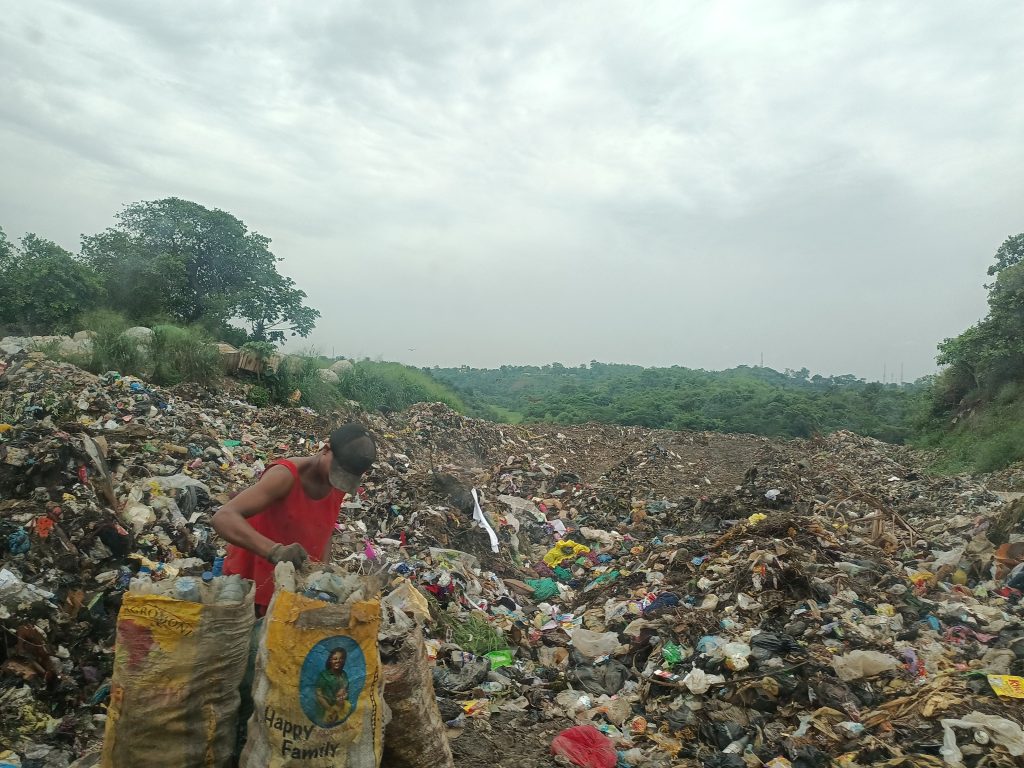
“They should have been able to check the environmental integrity before carrying out the project. There is a water course here which is down the ravine. Still pushing the waste in is a very harmful practice.
” In the perspective of humanity, the government needs to provide to the community a good source of drinking water that will be free from pollution.
“People are going to be left with no choice but to drink polluted water due to the fact that the waste disposed here will percolate into the soul and reach various tables of water. This kind of process may lead to a disease outbreak.”
The Program Manager who expressed concern over the use of waste as a method of land reclamation, explained that with plastics still among the waste used for the reclamation, the plastics will remain in the soil for hundreds of years without decay.
He added “It has compounded to create more hazards. In the future, people may have forgotten that this was a dump-site and they may build on this land. This is the reason why many buildings collapse as a result of poor methods of land reclamation.”
Mariere called on the government of Akwa Ibom State to correct the mistake at the permanent site where waste will be managed in the State.
The Program Manager said the State Government should forget the era of creating dump-site and move into creation of resource sites driven by policy.
He added “Under the secular economy, the world is moving away from the conventional method of waste management to the adoption of zero waste where nothing is wasted in the society.
“Before the place is used as a resource site, it needs to be a policy driven exercise where the waste management is participatory and there must be waste separation from the point of waste generation. It will make the work of waste pickers easier.
“The compartment where Plastic waste is kept, people will go there and move the plastics. That is the process that must be adopted for us to move away from the problem we see in this dumpsite.”
On the bio remediation aspect of the project, the environmental expert said what is done at the site is not a bio-remediation as claimed by the government but explained that bio-remediation is only carried out when it is biological or chemical pollution.
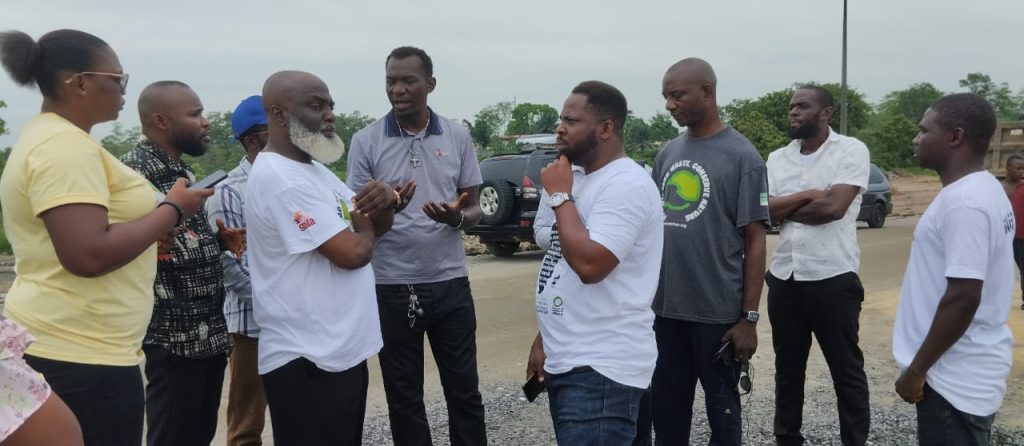
He explained “What they are calling bio-remediation here is simply fumigation. Fumigating is good but it also has some direct impact on the environment because there is going to be a runoff. We understand that there is a watercourse here. It means that the chemicals used in fumigation will affect the environment negatively.
“Before fumigation, there should be a pre-assessment to know the chemical composition or heavy metals that we have in this environment before we further pump in those chemicals through fumigation there. I totally disagree that they did bio remediation here.”
On his part, the Coordinator of Zero Waste Ambassadors in Akwa Ibom State and Program Lead of Policy Alert, Faith Paulinus said ZeWA is concerned that while solving an existing problem it should not also result in creating another problem for the community which is one of the things they have observed at the dumpsite.
Paulinus expressed dismay over the fact that instead of addressing the fundamental issue of waste management at the site, the waste is only moved to another location still around the site.
He added ” On the other hand, who were the contractors that handled the bio-remediation process? Do they really have the expertise to conduct such? How was the contract awarded and what is the duration of the project? How involved are the host communities in the project?
” These and many more issues call for serious concern for us in ZeWA. We expect the Akwa Ibom Environmental Protection and Waste management agency to properly inform citizens on the progress made so far as this will address key questions around human rights, transparency and accountability.”
The ZeWA Coordinator urged the State Government to adopt the Zero Waste policy through the Zero Waste guidelines which is available within the public space.
He said as a group blessed with enormous environmental expertise, they are ready to suggest workable ideas that could help change the existing situation.
Paulinus stressed that ZeWA is very passionate about ensuring that the rights of the people are protected.
Attempts to get reaction from the Akwa Ibom State Environmental Protection and Waste Management Agency were futile. The Agency is responsible for the remediation project.
The Chairman of the Agency did not respond to several calls, text and WhatsApp messages sent to his known phone line.
TheMail Newspaper had requested information on the level of remediation work at the dumpsite.
The newspaper specially sought to know if the project implemented is really bio-remediation, who the contract for the bio-remediation is, what will happen to the plastic among other non degradable waste covered by the red sand.
TheMail also sought to know if there was a pre-assessment test conducted on the environment before the remediation, who conducted and the result of the test.
It also requested to know the duration of the remediation project, and when the State Government is moving to the permanent dumpsite.
Meanwhile, the environmental rights team visited the site designated as the permanent dumpsite at Ntak Inyang in Itu local government area and discovered that there was no access road, suggesting that there was no immediate plan for relocation to the permanent site.
